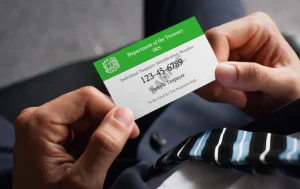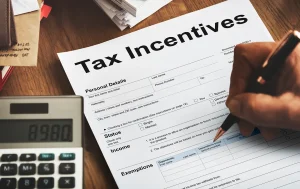Tax season can be a stressful time for many individuals and businesses. Choosing the right tax preparer is crucial to ensuring that your taxes are filed correctly, on time, and in compliance with current laws. With so many tax preparers available, it can be difficult to know who to trust with such an important task. Below are some key tips to help you choose the best tax preparer for your needs.
1. Verify Credentials
One of the most important factors in choosing a tax preparer is verifying their credentials. Not all tax preparers are the same, and some have more qualifications than others. Here are a few credentials to look out for:
- Certified Public Accountant (CPA): CPAs are licensed and regulated by state boards of accountancy and have passed rigorous exams. They are qualified to handle complex tax issues and offer financial advice.
- Enrolled Agent (EA): Enrolled agents are federally authorized tax professionals with expertise in tax matters. They can represent you before the IRS and are required to keep up with continuing education.
- Tax Attorney: Tax attorneys are specialized lawyers who focus on tax law. They can provide legal advice and representation in tax disputes.
- Annual Filing Season Program (AFSP): Some preparers participate in the IRS’s AFSP, which requires them to meet certain education and competency standards.
Make sure your tax preparer has the appropriate certification and registration for the complexity of your tax situation.
2. Check for Experience
Experience matters when it comes to tax preparation. A tax preparer who has been in the business for several years is more likely to have encountered various tax situations and will be better equipped to handle any issues that may arise. Ask how long they have been preparing taxes and if they have experience with your specific type of tax return, whether it’s for an individual, small business, or corporation.
3. Look for Specialization
Not all tax returns are the same, and some tax preparers specialize in specific areas, such as:
- Small business taxes
- Real estate investments
- Freelance or gig economy income
- International tax issues
If you have unique tax needs, it’s a good idea to work with a preparer who specializes in those areas. Specialized tax preparers are more likely to understand the nuances of the tax laws that apply to your situation and can potentially save you money by maximizing your deductions and credits.
4. Ask About Fees
The cost of tax preparation can vary greatly depending on the complexity of your return and the preparer’s qualifications. Make sure to ask about fees upfront. Some preparers charge a flat rate, while others charge by the hour or based on the complexity of the tax return.
Be cautious of preparers who base their fees on the size of your refund or promise a larger refund than other preparers. Ethical tax professionals base their fees on the amount of work required, not on how much money they can get you back.
5. Ensure E-Filing
The IRS requires paid tax preparers who prepare and file more than ten returns to electronically file (e-file) their clients’ returns. E-filing is faster and more secure than paper filing. It also reduces the chances of errors. Make sure your tax preparer offers e-filing services, as this will expedite your tax return processing.
6. Avoid “Ghost” Preparers
A legitimate tax preparer should always sign your tax return and provide their Preparer Tax Identification Number (PTIN). A “ghost” preparer, on the other hand, will prepare your taxes but refuse to sign the return. This is a red flag, as it indicates they may not be qualified or are trying to avoid responsibility for any errors in the return. Always make sure your tax preparer signs your return and includes their PTIN, which is required by the IRS.
7. Ask for References
If you’re unsure about a tax preparer’s qualifications or reputation, ask for references. A reputable tax professional will be able to provide you with client testimonials or references who can speak to their experience and quality of service. You can also check online reviews to see if other clients have been satisfied with their work.
8. Ensure Year-Round Availability
Taxes are not just a once-a-year task. Throughout the year, you may need to contact your tax preparer for advice or assistance with issues such as audits, amended returns, or estimated tax payments. Make sure the tax preparer you choose is available year-round to help with any tax-related questions or problems that may arise.
9. Check for Ethical Standards
Your tax preparer should follow ethical standards and comply with IRS rules. Beware of tax preparers who:
- Ask you to sign a blank return.
- Guarantee a refund before knowing your tax situation.
- Claim they can obtain refunds for ineligible credits, such as the Earned Income Tax Credit (EITC).
- Pressure you to take deductions or credits that you are not entitled to.
It’s important to work with someone who is honest and transparent about your tax situation.
10. Review Your Return Before Signing
Even if you hire a tax professional, it’s important to review your tax return before you sign it. Make sure that all the information is correct, including your income, deductions, and credits. Once you sign the return, you are legally responsible for the information it contains, even if the preparer made a mistake.
Conclusion
Choosing the right tax preparer can make tax season less stressful and ensure that your taxes are filed correctly and on time. By verifying credentials, asking about fees, and checking for experience and specialization, you can find a tax preparer who is qualified to handle your unique tax needs. Always review your return carefully before signing and avoid any preparer who raises red flags. With the right tax professional, you can feel confident that your taxes are in good hands.



